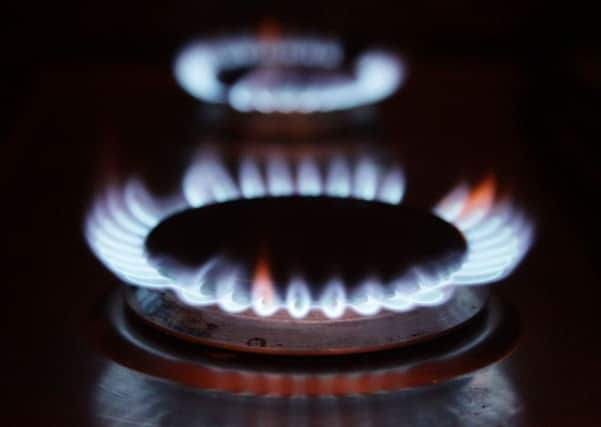Jayne Dowle: A cold sense of fear as heating bills mount up


These days we’re all in it together. As temperatures have plunged below zero and blizzards rage across much of the UK, I’ve noticed just how many people are frightened to leave the heating on, including me.
Heating or eating? As the cold snap really begins to bite, it’s not just those on the breadline worrying about bills. What kind of country do we live in where keeping warm affordably is no longer a human right?
Advertisement
Hide AdAdvertisement
Hide AdThe debate rages across social media almost as fiercely as the blizzards. Consumer rights groups and charities concerned with the elderly join forces to question how and why energy bills in the UK are so expensive.
I’ll give you an example. We pay £150 a month for dual fuel in a four-bedroomed house, or £1,800 a year. That’s a big chunk of money. However, my extensive research into energy providers over the years suggests that this is fairly average, if a little on the high side, as I am at home all day using electricity if not gas (see below).
However, I’d be very wary of relying on averages as gospel. I took a look at the Ofgem website, www.ofgem.gov.uk, and I thought I’d fallen into a time warp. According to the Government-backed body which regulates the energy industry, the cheapest available dual fuel tariff for an “average” UK house is around £820 a year if you opt for paperless billing paid by direct debit.
Now, if you know anyone who pays that paltry amount for their gas and electricity. please can you send them my way because I’d like to know how they do it.
Advertisement
Hide AdAdvertisement
Hide AdIn normal weather circumstances, as soon as my partner and children are out of the door in the morning, I turn all the radiators off and add an extra layer of two of clothing. On especially cold days I could be mistaken for a cavewoman, but there’s no-one to see me except for the dog.
However, it was so cold the other day that when I went down to the kitchen to make a cup of tea I thought the back door had been left open. I could literally see my breath. Cue the moral dilemma I’m all too familiar with.
Switch radiators off at night or leave them running low 24/7? Rely on a timer or spend your waking hours running up and down the stairs switching heating on and heating off? Fine-tune every thermostatic radiator valve in the house? Turn the boiler temperature down – and risk the pressure dropping and rendering the blasted rumbling thing defunct – or throw caution to the wind?
My partner and children think I’m tight and mean and slightly obsessed with the heating system they take for granted. However, it wasn’t them who battled two years of astronomical bills with a well-known energy provider which resulted in a debt collection agency letter. I know I’m an extreme case, but I swear it’s left me with some kind of post-traumatic stress disorder.
Advertisement
Hide AdAdvertisement
Hide AdIt’s taxing enough for those of us who enjoy the luxury of standard gas and electricity meters, or are lucky enough to have a smart meter. Don’t get me started on smart meters, by the way. I’m still waiting for mine.
Countless struggling households have to rely on pre-payment meters which require topping up by card. This is especially the case in rental properties. All too often landlords are loathe to allow tenants to switch to a “normal” meter in case they leave a trail of unpaid bills.
Not only is this inconvenient – and more so when conditions underfoot are treacherous – it’s also very expensive for the tenant. These are the people in proper dire straits, more so if they have children to feed too.
And what about the elderly people, so proud and afraid of poverty? A survey a few years ago for Age Concern found that around two million elderly people are so desperately cold that they are going to bed when they are not tired. A similar number have moved into one room, in an attempt to keep their energy bills down.
Advertisement
Hide AdAdvertisement
Hide AdI know that the more caring energy companies offer financial schemes to help vulnerable customers. I’m aware, too, that the government offers cold weather payments to certain groups and that the Prime Minister often reminds us of her intention to hold the Big Six energy companies such as British Gas and Scottish Power “to account”.
My question is, what is the point of all this when energy bills continue to soar and take up an ever-increasing proportion of income? It’s overall affordability that the Government should be looking at, not spurious “averages” – but this means assessing tricky issues such as low pay, zero hours contracts and Universal Credit. It’s not going to be easy, but if we’re all to survive another winter, it can no longer be avoided.